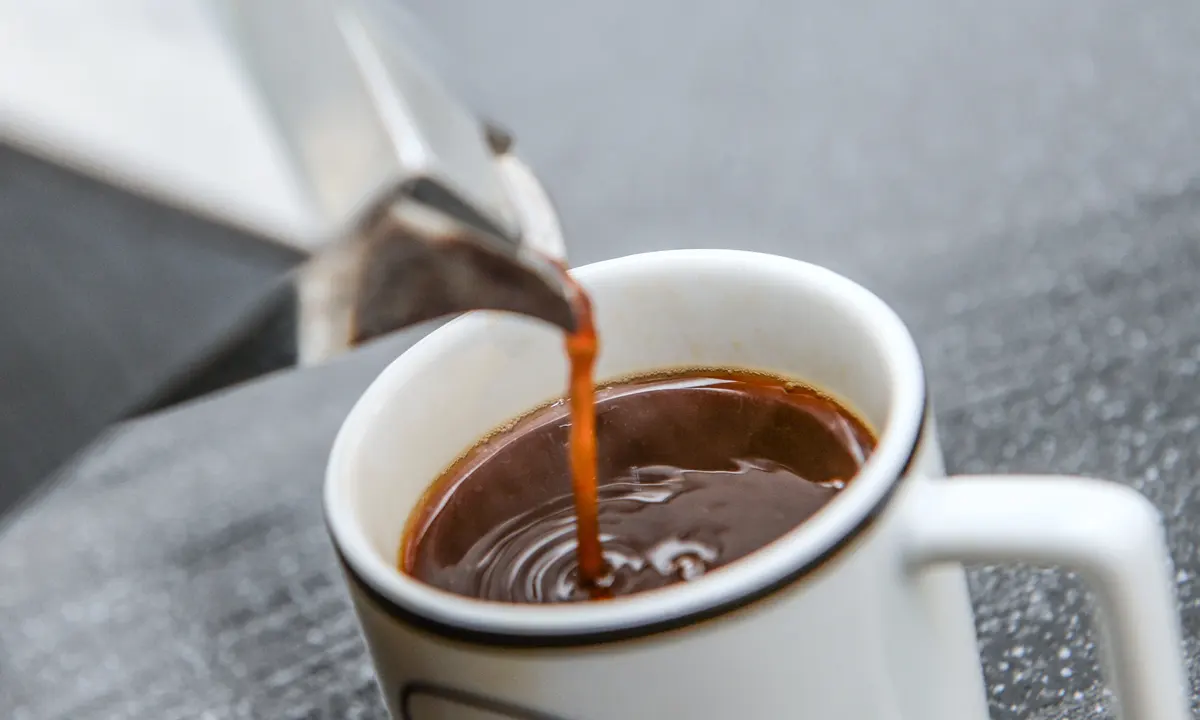Espresso drinkers seem to have a decrease danger of dying younger, whether or not with or with out sugar, nevertheless consultants warning that the invention will not be as a result of liquid itself.
In response to the British Espresso Affiliation, over 98 million cups of espresso are consumed day by day within the UK, whereas the Nationwide Espresso Affiliation estimates that 517 million cups are consumed in america.
Espresso use has been linked to a decrease danger of diseases starting from power liver illness to sure malignancies and even dementia in earlier analysis.
Individuals who drank a reasonable quantity of espresso day by day, whether or not sweetened with sugar or not, had a decreased danger of dying all through a seven-year interval than those that didn’t, in response to Chinese language researchers.
Instantaneous, floor, and decaffeinated espresso all yielded comparable outcomes.
The research, which was revealed within the Annals of Inside Medication, relies on knowledge from greater than 171,000 UK BioBank contributors. Since its inception in 2006, the UK BioBank has collected genetic, way of life, and well being info from greater than 500,000 folks, together with info on espresso consumption.
The researchers adopted the people for a median of seven years starting in 2009, throughout which period 3,177 folks died.
After accounting for parameters corresponding to age, gender, ethnicity, academic stage, smoking standing, amount of bodily exercise, physique mass index, and food regimen, the researchers found that individuals who drank unsweetened espresso had the bottom danger of dying when in comparison with those that didn’t.
Those that drank 2.5 to 4.5 cups per day had the largest discount, with a 29 % decrease likelihood of mortality.
Espresso sweetened with sugar was additionally linked to a decrease danger of dying, at the least for many who drank 1.5 to three.5 cups per day. For many who used synthetic sweeteners, the sample was much less apparent.
The research, however, solely requested contributors as soon as about their espresso use and different behaviors, counting on self-reporting. The vast majority of people who used sugar added solely a tablespoon to their drink, so it’s unclear if the findings would maintain true for high-sugar specialty coffees.
Whereas the findings had been intriguing, Naveed Sattar, a professor of metabolic medication on the College of Glasgow who was not concerned within the research, cautioned that they weren’t conclusive.
“As a result of this new research is observational, these conclusions are removed from definitive,” he mentioned.
“It’s because espresso customers are sometimes wealthier and reside longer lives than non-drinkers, and I’m not assured that observational research can overcome these traits.” Prof Sattar went on to say that there was no genetic proof linking espresso to any vital well being benefits.
“I’d advise them to stay to espresso or tea, ideally with out sugar, which most individuals can regulate to, and to do all the opposite issues we all know hold you wholesome – transfer extra, eat higher, and sleep higher,” she says.
Dr. Christina Wee, the journal’s deputy editor, acknowledged that the findings weren’t conclusive in an accompanying editorial. Nevertheless, she went on to say that consuming espresso, whether or not unsweetened or with a small little bit of sugar, didn’t look like hazardous to most individuals.
“So drink up – however whereas extra proof brews, it might be good to keep away from too many caramel macchiatos,” she added.

